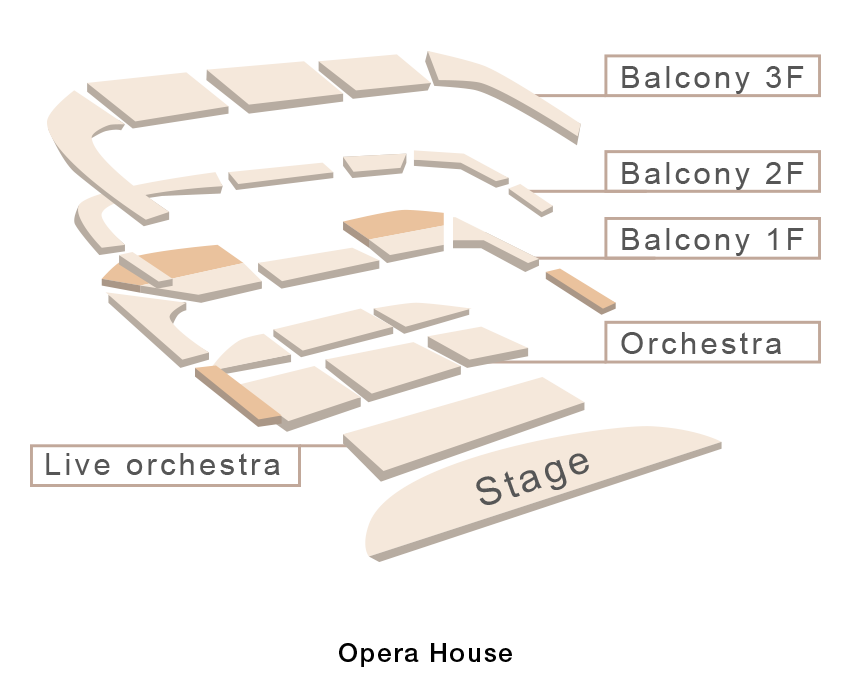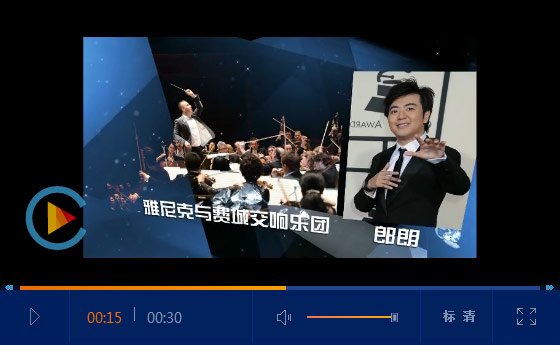|
Dates |
Samson |
Dalila |
High Priest of Dagon |
|
Sept. 09 |
José Cura |
Nadia Krasteva |
Egils Silins |
|
Sept. 10 |
Kristian Benedikt |
Oksana Volkova |
Zhang Feng |
|
Sept. 11 |
José Cura |
Nadia Krasteva |
Egils Silins |
|
Sept. 12 |
Kristian Benedikt |
Oksana Volkova |
Zhang Feng |
|
Sept. 13 |
José Cura |
Nadia Krasteva |
Egils Silins |

Hugo de Ana Director/Set Design/Costume Design
Director of NCPA's Il Trovatore
Acclaimed for his spectacular scenery sets as well as for his special way to use the lights, Hugo de Ana is a regular guest at world's most prestigious opera houses. His career started as Technical Director and Executive Producer at the Teatro Colón in Buenos Aires, staging operas such asTurandot, Werther, Don Carlo, Cavalleria Rusticana, Pagliacci, Medea and The Rake's Progress. Then he moved to Santiago de Chile where he staged Roméo et Juliette, Lucrezia Borgia, Don Carlo and Les contes d'Hoffmannreceiving for three consecutive years the critics' price as the best director.
Soon he started his collaboration with Teatro de la Zarzuela, in Madrid, and the Liceu Opera Theatre in Barcelona, where he signed works such as Armida, Andrea Chénier, Die Walküre, La Bohème, Ermione, and Otello. He made his Italian debut in 1990 staging Mosè in Egitto in Bologna. Since that moment he started to collaborate with the most important Italian theatres: Teatro La Scala in Milan (Lucrezia Borgia, Samson et Dalila, La forza del destino and Il Trovatore), Teatro Regio in Turin (Manon Lescaut), Teatro San Carlo in Naples (Mosè in Egitto), Teatro dell'Opera in Rome (Ermione, Werther, Respighi's Marie Victoire, La Fiamma, Il Barbiere di Siviglia, Mascagni's Iris), Arena di Verona (Nabucco, Les contes d'Hoffman), Rossini Opera Festival (Semiramide), Teatro la Fenice in Venice (Carmen), as well as the theatres of Genoa, Catania and Parma.Hugo de Ana He staged La Sonnambula at Santander's International Festival during the summer 2007.
He worked also with the Deutsche Opera Berlin (Don Carlo), the Covent Garden in London (Lucrezia Borgia, Don Carlo), Seville Opera House (Aida), Tel Aviv Opera house (Tosca). He signed also, amongst the others, productions as: Le Cid in Seville and Washington, Simon Boccanegra in Parma,Turandot, L'elisir d'amore and Norma in Tokio. completing the Faust opera cycle also including Berlioz's La damnation de Faust and Schumann's Szenen aus Goethes Faust. During 2008 and 2009, he made a number of new productions: La Favorita in Chile, Medea in Turin, Aida in Padua, LaTraviata in Maribor. His latest work has been Lehár's La Vedova Allegra in Padua. He gained great success directing Senso for the opening night season 2011 at the Teatro Massimo in Palermo. In the next future he will direct: La Traviata and Il Barbiere di Siviglia at the Arena in Verona; Attila at the Teatro alla Scala in Milan.
Born in Buenos Aires, Hugo de Ana graduated at Ernesto de la Corcova Arts School as professor in visual arts and custom design for TV and cinema. Right after graduation, he lectured at the Universidad de la Plata.
Hugo de Ana has recently directed Gounod's Faust at the Teatro Regio in Parma,In 1997, he was awarded the Abbiati Prize, for his stage direction of Iris, Turandot and Les contes d'Hoffman as well as in 2001 thanks his Stage Direction of Don Carlo at the Teatro Real in Madrid as the best stage direction, scenography and costume design. In 2002 he won the Opera Award for La forza del destino and two years later for Gounod's Faust.

Leda Lojodice Choreographer
After studying both traditional ballet and contemporary dance, Leda Lojodice has been on stage in the greatest opera houses in Italy and abroad, and has been the étoile in several performances of the classic repertoire.
She has danced in many opera ballets, such as Verdi, Bizet, Gounod, Rossini, Massenet, Ponchielli, and has created the choreographies and the movements for the operas, working in various theatres: The Rossini Festival in Pesaro, the Teatro La Scala in Milan, the Opera in Rome, the Covent Garden in London, the New National Theatre in Tokyo, the Teatro Real in Madrid, and the Teatro Colón in Buenos Aires, among the others. In Washington she has created the choreography for Cid by Massenet, performed by Placido Domingo.
She has collaborated with many directors: she has been the great performer of the "Mechanical Doll" in Fellini's film Il Casanova, she had made the choreography of the engagement party in Benigni's film La Vita è Bella, she has played the original role of the "Femme Fatale", under the direction of the famous film-maker René Clair and the choreographer Aurel Milloss.
Throughout her career she has been awarded with the most important prizes. She has had special master-classes for the education of actors, mimes and singers at the Istituto del Dramma Antico in Syracuse, at the Rome Cinema Institute and the Laboratorio Gigi Proietti.
At the Arena di Verona she has been the étoile in Carmen by Bizet in 1970 and in Sansone e Dalila by Saint-Sa?ns in 1974; she has made her debut as a choreographer in 2007, with Il Barbiere di Siviglia by Rossini.
In the occasion of the 2011 Opera Festival, she has created the choreography of La Traviata and the revival of Il Barbiere di Siviglia.

Vinicio Cheli Lighting Design
Vinicio Cheli has been the lighting designer for NCPA's productions of Tosca,Der Fliegende Hollander, Un Ballo in Maschera, Lohengrin, Otello andL'italiana in Algeri.
From 1974 to 1979, Vinicio Cheli works at the 'Maggio Musicale Fiorentino' involved in all productions. Since 1979 he joined the 'Piccolo Teatro' of Milan and became the light collaborator of Giorgio Strehler, making the entire production of Piccolo until 1989. Since 1987, for four years, he worked with the 'Rossini Opera Festival' to produce shows with several directors.
At the same time since 1989 he worked at the Salzburg Festival, Theatre Champs-Elysees, Chalet Theatre in Paris with the set design by Pier Luigi Pizzi, then respondeed to the La Scala in Milan. Recollaborated some years with the Teatro La Fenice in Venice.
The 90s of the last century saw himwork in the Opera Bastille, National Theatre of Prague,Festival of Aix en Provance, Ravenna Festival, the Opera of Monte Carlo, Opera of Geneva, Maggio Musical Fiorentino, Baroque Festival of Versailles, Opera Garnier in Paris, Easter Festival in Salzburg, Teatro Liceu in Barcelona, Atticus Theater in Athens, Ginza Saison Theater in Tokyo, Theatre of the axes of Brussels, Amsterdam Opera, Teatro Comunale of Bologna, Teatro dell'Opera in Rome, Opera of Toulouse, National Theatre of Catalunya in Barcelona,Teatro Real Madrid, Metropolitain in New York, and collaborated with P.L.Pizzi,Ezio, Frigerio, Hugo de Ana, KM Gruber, Henning Brockaus, Claudio Abbado, Riccardo Muti, to name just a few.
In the new miennium, Vinicio Cheli continued to expand his collaboration with Ezio Frigerio, Hugo de Ana, F. Zeffirelli, V. Gergiev, Claudio Abbado, Nicola Joel, Quirino Conti, Mario Gas, in productions covering a vast realm of the opera repertoire.
In 2010, he set up La donna del lago of Rossini direqued by Luis Pasqual with scenes by Ezio Frigerio and costumes by Franca Squarciapino; Boris Godunojv directed by Andrei Konchalovsky
In the beginning of 2011, he worked in Senso, a new opera directed scenes and costumes by Hugo De Ana; and in Medea directed by Theodorakis in Syros Festival of the Aegean in July 2011. In November of 2011, he worked in The Sleeping Beauty, first ballet of reopening of Bolshoi Theater. Vinicio Cheli also taught theatrical lighting at the New Academy of Fine Arts in Milan and at the Professional School of La Scala.

Sergio Metalli Projection Design
Sergio Metalli was born in Rimini in 1956 and he is dedicated to his passion for electronics that bring him to choose studies along those lines.
His versatility led him to perform collaborations in all areas at the highest levels like the State television, to have daily collaborations with artists like Dario Fo, Tonino Guerra, Mietta Corli, Hugo de Ana, Nicolas Joel, Ezio Frigerio, Josep Maria Flotats, Lindsay Kemp, Pier'Alli, Gianni Quaranta, Raffaele Curi, Lluis Pasqual, José Carlos Plaza, Tito Egurza, Margherita Palli, Luca Ronconi, William Landi, Peter Stein, Vladimir Vasiliev and many others passing from international conferences until the Theatre which he has a very special feeling.
In over a decade of successful career he has made over 360 productions and he has worked with major opera theatres around the world.

Tiziana Carlini Chorus Master
Tiziana Carlini begins her piano studies at the age of six, and achieves her diploma in Piano.
At the Conservatory of Parma 'Arrigo Boito', she gains her diploma as Orchestral Conductor, to then achieve her Kappelmeister degree at the Hochschule fur musik in Graz, Austria.
Among her numerous teachers, of particular influence have been Franco Ferrara, Milan Horvat, Leopold Hager and Carlo Maria Giulini.
From 1986 to 1997 she was Kappelmeister and Chordirektor within the Operahaus of Graz, in which period she has conducted La Traviata, Carmen, Il Barbiere di Siviglia, Stiffelio, Aida, Don Giovanni, Romeo e Giulietta (Prokofiev) and others, participating in 97 different titles among opera, operettas and musicals as the Choral Conductor.
In 1997, she was invited by the Bellini Theater in Catania, Italy, to fill the role of Choral Conductor. From 1997 to 2014 she has therefore been responsible for every operatic production of the theater, as well as the copious symphonic production, which she has conducted not only with the theater of Catania but also in numerous tourneés abroad in Japan and Russia.
She was invited in 2013 by Claudio Abbado to prepare the choir for Verdi's Requiem in Taipei, Taiwan China.
She has recorded numerous CDs and DVDs with the choir of the Bellini theater, among which Norma, Gioconda, La Battaglia di Legnano, I Puritani, La Straniera, Bianca e Fernando, Capuleti e Montecchi, Il Trovatore, Pagliacci and Cavalleria Rusticana with Andrea Bocelli, Donizzetti's Requiem, both for Decca and EMI.
She has been awarded national prizes for her interpretation of the Italian operatic repertoire and, as choral conductor, she has been given prestigious prizes such as the Danti Alighieri prize.
She is currently teacher at the Conservatory of Rome 'Santa Cecilia'.
She has just concluded the opera season at the Verdi theater in Salerno, Italy, under the conduction of Maestro Daniel Oren.

José Cura as Samson
World-famous for his intense and original interpretations of opera characters, tenor José Cura is a familiar name atop the marquees of the most prestigious theaters. But Cura is much more than an operatic star: he is a trained composer and conductor, an opera director and a stage designer.
After studying Composition and Orchestra Conducting in his home town, Rosario, Cura moved to Buenos Aires in 1984 to hone his skills. To gain insights into stage life in general and the art of singing in particular, he worked in one of the professional choirs at the Teatro Colón from 1984 to 1988,where his voice developed into the distinctive bold and bright tenor with tints of dark baritone that would eventually lead to international fame.
In 1999, José Cura resumed his conducting career, working with top orchestras like the London Philharmonia, the London Symphony, the Vienna Philharmonic, Sinfonia Varsovia, the Toscanini Orchestra, and the Hungarian Philharmonic, among others, in both operatic and symphonic works, thrilling audiences with his performance both in the pit and on the platform. Cura has also released several well-received recordings,including a powerful, intense Rachmaninov Symphony #2 that earned wide critical acclaim.
2007 saw the world-premiere of La Commedia è finita — a creative re-imagining of Pagliacci coupled with dance and mime, designed and directed by José Cura — which marked the beginning of his career as a stage director and designer. In 2010 Cura set designed, directed and starred in Saint--‐Saens' Samson et Dalila at the Badisches Staatstheater, crafting an innovative, modern take on the classic. The production is available on DVD. The unanimous plaudits of the audience and critics for his La Rondine at the Opéra de Nancy and Cavalleria Rusticana and Pagliacci at the Opéra Royal de Wallonie, both in 2012, sealed his stature as a director of distinction.
In 2013, his production of Otello at the Teatro Colón in Buenos Aires was selected as one of the most successful productions of the year by international voting.
Year 2014 was marked by José Cura's return to his activity as composer: in November, the South Bohemian Opera (Czech Republic), premiered his Stabat Mater, written in 1989 and in Easter 2015, after his return as Don José at La Scala, the world premiere of his Magnificat, written in 1988, took place at the Teatro Massimo di Catania.
In May 2015, Maestro Cura was appointed 'Artist in Residence' of the Prague Symphony Orchestra. As part of his commitments with the prestigious Czech ensemble, he will not only conduct two symphonic concerts per season, but also will premiere some of his compositions like the Seven Sonnets, based on Pablo Neruda's poetry, the Czech premiere of his Magnificat and the world premiere of his oratorio Ecce Homo.
On the 6th of June 2015, José Cura was honored by the Argentinean Senate, with the Domingo Faustino Sarmiento Prize for his achievements education and culture.

Kristian Benedikt as Samson
Lithuanian tenor Kristian Benedikt began his career at the National Opera of Vilnius, Lithuania, where he sang more than 20 roles. Although he began his career as a lyric tenor, over the last years Kristian Benedikt has established himself as one of the world's most promising and exciting dramatic tenors of his generation.
Recently (April 2013) Benedikt had his successful debut at Bayerische Staatsoper München as Otello– a role he also sung in Modena, Piacenza, Cagliari, Ekaterinburg, Vilnius (2013/14), Santiago (July/August 2014), and in Basel (2014/15). His following engagements in 2013/2014 included the title roles of Ernani, Lohengrin and Otello as well as the roles of Eleazar/La Juive, Radames/Aida, and Don José/Carmen.
His operatic repertoire features moreover some of the most demanding roles, such as Manrico/Il Trovatore, Cavaradossi/Tosca, Canio/I Pagliacci, Giordano/Andrea Chenier, Siegmund/Die Walküre, Calaf/Turandot, he title role in Rienzi and Dick Johnson/La Fanciulla del West. He continues, nonetheless, to also sing in parallel fashion other more lyric roles, such as Edgardo/Lucia di Lammermoor, and the title role in Les Contes d'Hoffmann. As a guest, Mr. Benedikt has sung at such prestigious venues as the Bavarian State Opera in Munich; the Mariinsky Theater in Saint Petersburg; the Royal Opera House in Copenhagen; the Finnish National Opera in Helsinki; the Dutch National Opera in Amsterdam; the Estonian National Opera in Tallinn; Liceu theatre in Barcelona; and the theaters of Piacenza, Modena and Cagliari in Italy.
His international breakthrough came in 2002 at Munich Rundfunk Orchestra where he recorded Ponchielli's La Gioconda with M. Viotti and P. Domingo. In 2004 at Nederlandse Opera (DNO-Amsterdam) he sang in Verdi's Don Carlos with R. Chailly. Other highlights following were singing Don José/Carmen in 2005 at the Mariinsky theatre, and Canio/I Pagliacci in 2006 at Estonian National Opera in Tallinn. From 2007 to 2009 he was a regular guest with mostof the operas in the Baltic Countries in roles such as Hoffmann/Les Contes d'Hoffmann, Cavaradossi/Tosca, Duca/Rigoletto, Manrico/Il Trovatore and Alfredo/La Traviata.
In 2009 he had his debut in Verdi's Requiem with European Union Choir and the 2009/10 season included important debuts in four roles as Andrea Chenier, Des Grieux/Manon, Corrado in Ponchielli's I Lituani and as Pinkerton/Madama Butterfly. In 2010/11 he sang successfully Eleazar/La Juive, the title role in Otello,Turiddu/Cavalleria Rusticana, and Calaf/Turandot at Opera houses in Russia, Baltic Countries and at the Danish Royal Opera. Furthermore he sang Don Jose in Sweden Opera festival.
Last season Benedikt made his debut as Edgardo/Lucia di Lammermoor as well as he sang many concerts and performances of Otello, Eleazar, Jose, Des Grieux, Manrico, Siegmund/Die Walküre in various opera houses. Healso performed Dick Johnson/La Fanciulla del West at the Finland National Opera. On the concert stage Kristian Benedikt has sung Dubois' The Seven Last Words of Christ, Rossini's Stabat Mater and Verdi's Requiem, amongst other works. He has also taken part in several oratorio performances, such as Handel's Messiah, Mahler's Das lied von der Erde, Rachmaninov's The Bells, and Webber's Requiem.
Mr. Benedikt has sung under the baton of several famous conductors including M. Viotti, R.Chailly, A. Hold Garrido, M.Barbacini, P.Carigniani, A. Fisch, G.M.Bisanti and worked with great stage directors such as W.Decker, D.Bertman, A.Bernard, E.Nekrosius, P.F.Maestrini, and I.Uschakov.

Nadia Krasteva as Dalila
Nadia Krasteva was born in Sofia, Bulgaria. She graduated at the National Academy of Music and studied in Rome with Anita Cirquetti. She began her professional career inBulgaria in 2001 debuting with roles such as Carmen, Fenena, and Maddalena. One year later she got an invitation to join the Vienna State Opera, where she turned shortly to one of the leading mezzo-sopranos. She was a member of the ensemble of the Vienna State Opera from September 2002 till June 2012 and over the same period was frequently invited guest in many prestigious opera houses.
Engagements for the 2013/2014 season included performing as Amneris in Aida at the Teatro alla Scala, and in the same role at the Staatsoper im Schiller Theater Berlin. Engagements for the 2014/2015 season include her performing at the Metropolitan Opera as Eboli in Don Carlo,as well as the same role at the Semperoper Dresden.
Her stage debut at the Vienna State Opera was as Fenena in Nabucco and she gradually performed more than 30 partsand participated in 10 premieres with roles such as Carmen, Eboli (in Italian and in French), Adalgisa, Leonor de Guzman, Sara, Maria Gesualdo, Preziosilla, Ulrica, Giulietta, Marina Mnishek, Olga, Pauline/Daphnis, Maddalena and Suzuki.
Nadia Krasteva has performed her bravura role Carmenat Arena di Verona, the Vienna State Opera, Chicago Lyric Opera, Bolshoi Theatre, Deutsche Oper Berlin, De Nederlandse Opera, St. Margarethen Open-air festival, Savonlinna Opera Festival, Companions Opera, Riga Opera festival, National Opera Rigaand National Opera Sofia.
Nadia has regularly visited Nomori Opera Tokyo, Chicago Lyric Opera, Arena di Verona, Deutsche Oper and State Opera in Berlin, Bavarian State Opera Munich, Zurich and St. Gallen opera houses, Grand Opera Paris,Palau de les Arts Reina Sofia(Valencia), Festival House Santander, Theater an der Wien, Vienna Konzerthaus, Misikverein Vienna, Misikverein Graz, Verdi Festival Parma, Bolshoi Theatre, Eisteddfod in Cardiff,Bryn Terfel's Faenol festival, Aalto Theatre Essen, Gewandthaus Leipzig, Sigulda Opera Festival-Riga, where she performedmajor mezzo-soprano roles such as Eboli(Don Carlo), Amneris (Aida), Venus(Tannh?user), Sara (Roberto Devereux), Marina(Boris Godunov), Ulrica (Un Ballo in Maschera), Leonor de Guzman (La Favorite), the Foreign Prinzess (Rusalka), Adalgisa (Norma), Preziosilla (La forza del destino), Suzuki (Madama Butterfly), Verdi's "Messa da Requiem", and gave opera gala concerts and song recitals.

Oksana Volkova as Dalila
Oksana Volkova made her NCPA debut in Carmen.
Minsk born mezzo-soprano Oksana Volkova graduated from the Belarusian State Academy of Music, where she studied with prof. Lidia Galushkina. Oksana has won many national and international singing competitions including the first prizes at the XXII International M. Glinka Competition, Antonin Dvorak International Competition. While still a student at the Academy of Music, Oksana joined the ensemble of the Belarus Bolshoi Opera in 2002.
Currently she is a member of the Bolshoi Theatre in Moscow, with whom she went on tour in the summer of 2010 singing Olga in Eugene Onegin at the Royal Opera House Covent Garden and the Teatro Real Madrid.
Oksana's 2013/14 season's highlights include a return to the MET in Eugene Onegin (in a new production by Deborah Warner, conducted by Valery Gergiev), Rigoletto at Bayerische Staatsoper Munich, Carmen (title role) on a major six city tour of Japan with the Maribor National Theater, and Nabucco, Tsars Bride and Carmen all at the Bolshoi Theatre.
Highlights of past seasons season include her debut at the Metropolitan Opera New York as Maddalena in Rigoletto. She also sang the role of Laura in La Gioconda at the Teatro Massimo di Palermo, Marguerite in La Damnation de Faust at Opera de Nice, Santuzza in CavalleriaRusticana at Teatro San Carlo Napoli, Lyubasha in Tsars Bride and Olga in Onegin at the Bolshoi Theatre Moscow and the title role in Carmen at the Mariinsky Theatre St Petersburg; Teatro Colon Buenos Aires and Latvian National Opera, Riga.
Her repertoire includes Carmentitle role, Prince Igor (Konchakovna), Boris Godunov (Marina Mnischek), Madama Butterfly (Suzuki), La damnation de Faust (Marguerite), Prince Igor (Konchakovna), La Gioconda (Laura), Cavalleriarusticana Santuzza, The Tsar's Bride (Lyubasha), Kashey the Immortal (Kasheevna), Eugene Onegin (Olga), Pique Dame (Polina&Milovzor), Nabucco (Fenena), La Traviata (Flora) and Aida (Amneris). Roles Oksana is currently preparing Norma (Adalgisa), Werther (Charlotte) and Samson and Dalilah (Dalilah). In concert she has already sung Mozart and Verdi Requiems as well as Tchaikovsky's Moscow Cantata as well as Prokofiev's Alexander Nevsky.

Egils Silins as High Priest of Dagon
Egils Silins' NCPA appearance includ Der Fliegender Hollaender and Lohengrin.
The bass-baritone Egils Silins was born in Latvia and graduated from the Latvian Academy of Music. He made his debut at the Latvian National Opera in 1988, performing in ‘Mephistopheles' (Boito). He has won ten international competitions and received the Latvian Annual Music Aware in 1996 and 2003.
After engagements at the Frankfurt opera and Basel opera, he became soloist at the Wiener Volksoper with an acclaimed debut as Mephisto in Gounod's Faust, followed by the leading role Boris Gudonov directed by Harry Kupfer. He made his debut at the Wiener Staatsoper in I Puritani. Other roles at the Wiener Staatsoper included the title role in Mephistopheles (Boito), Silva in Ernani, Raimondo in Lucia di Lammermor, Rodolfo in La Sonnambula, Escamillo in Carmen and Procida in Sicilian Vespers. He gained huge international acclaim singing the title role in Le Demon (Rubinstein) at the 1997 Bregenz Festival. He has also performed at numerous prestigious music festivals including The Tanglewood Music Festival, Savonlinna Opera Festival and the Glyndebourne Festival.
Egils Silins has performed at many of the world′s leading opera houses, including La Scala, Metropolitan Opera, Hamburgische Staatsoper, Semperoper, Deutsche Oper Berlin, Teatro del Liceu, Mariinsky Theatre, Opernhaus Zürich, Chicago Opera, Staatstheater München, among others.
His repertoire (more than 70 roles), include: Hollaender/Der Fliegender Hollaender, Wotan/Das Rheingold/Die Walküre, Wanderer/Siegfried, Klingsor/Parsifal, Johannaan/Salome, Barak/Woman without Shadows, Orest/Elektra Demon/Demon, Rangoni/Boris Godunov, Gd. Prêtre/Samson et Dalila, Mephisto/Faust and Damnation de Faust, Sebastiano/Tiefland, Scarpia/Tosca and Germont/La Traviata.
His most recent engagements include among others the Ring Cycle and Salome at the Opernhaus Zürich, Das Rheingold and Die Walküre at the Opera de la Bastille, Der Fliegende Hollaender at Teatro Real, Deutsche Oper Berlin and Semperoper and Siegfried and Tiefland at Deutsche Oper Berlin, Salome at Royal Opera House Covent Garden.
He has worked with the world’s most renowned conductors such as Andrew Davis, Colin Davis, Nikolaus Harnoncourt, Marcello Viotti, Christian Thielemann, Phillipe Jordan, Christoph von Dohnányi, Zubin Mehta, Ricardo Mutti, Fabio Luisi, Seiji Ozawa, Vladimir Fedosseyev, Neeme Jarvi, Mariss Jansons, Andris Nelsons, Sebastian Weigle, Kazushi Ono, Gennady Rozhdestvensky and Mstislav Rostropovich.

Zhang Feng as High Priest of Dagon
Zhang Feng has performed in NCPA productions of Otello and Carmen.
Zhang Feng studied with Zhou Xiaoyan and Xu Yi, the famous sopranos and vocal educators, and Mirella Freni, the world's top sopranos. He won the first award twice in 1998 and 2000 at the Hungary Budapest International Music Competition; he played Montague in Romeo and Juliet. His first own opera in 1996, and won praises from artists at home and abroad, and since then, he has started performing on the global opera stage. He has played more than 20 roles, including Figaro from The Barber of Seville, Gianni Schicchi from Gianni Schicchi, Escamillo from Carmen, the Baron Scarpia from Tosca, Armand Duval from The Lady of The Camellias, Don Juan from Don Juan, and Qiu Hu from The Wilderness by Cao Yu. His major performances also include: the premiere of Chinese opera The Wilderness in 1997; the Italian Melody hosted by the famous Italian soprano Katia Ricciarelli in 1998; the opening ceremony performance for the China Pavilion Day at Hannover World Expo in Germany in 2000; the solo concert successfully held at the Carnegie Hall in New York and the Asian Outstanding Young Singer Concert in 2001; a leading baritone singer of Beethoven’s Ninth Symphony with German Philharmonic Orchestra, conducted by Justus Franz in 2004; the performance in celebration of the 60th anniversary of Italian National Day, the concert tour of the Puccini Opera Collections, and the open-air solo concert at the Bosa International Art Festival in Italy in 2006; the singing of the Toreador Song at the Golden Hall of Vienna in 2007, which won standing ovation for three minutes, and then the Beautiful Song of Napoli concert invited by the vocal king Renzo Arbore in Italy’s Viareggio; the three solo concerts successfully held in Italy's Rome and Sardinia in 2008. In 2011, the President of the Italy specially issued a certificate, conferring Zhang Feng the Knight of Italian Republic Medal, and commended him as 'one of the best opera singers' in the awarding speech.
Zhang Feng currently is a member of the Shanghai Political Consultative Conference (CPPCC) and vice chairman of Shanghai Youth Literature and Art Federation; he has won the Shanghai Artist award and the 15th Top Ten Shanghai Outstanding Youth award.
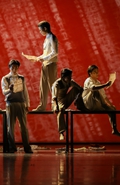 Repertoire
Repertoire
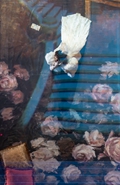 Films
Films
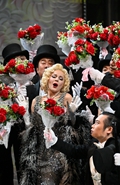 Videos
Videos
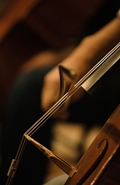 Podcast
Podcast
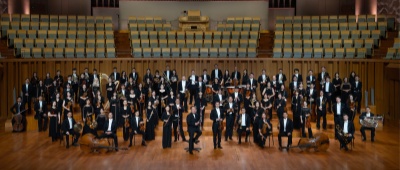 China NCPA Orchestra
China NCPA Orchestra
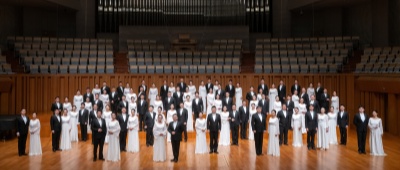 China NCPA Chorus
China NCPA Chorus
 NCPA Resident Singers
NCPA Resident Singers
 NCPA Drama Ensemble
NCPA Drama Ensemble
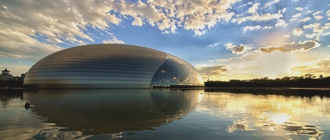 Buildings
Exhibitions
Buildings
Exhibitions
 Opening Hours
Services
Opening Hours
Services
 Western Cuisine
NCPA Café
Arts Gifts
Western Cuisine
NCPA Café
Arts Gifts








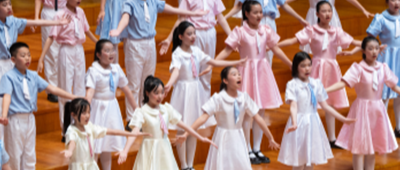
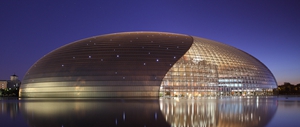






















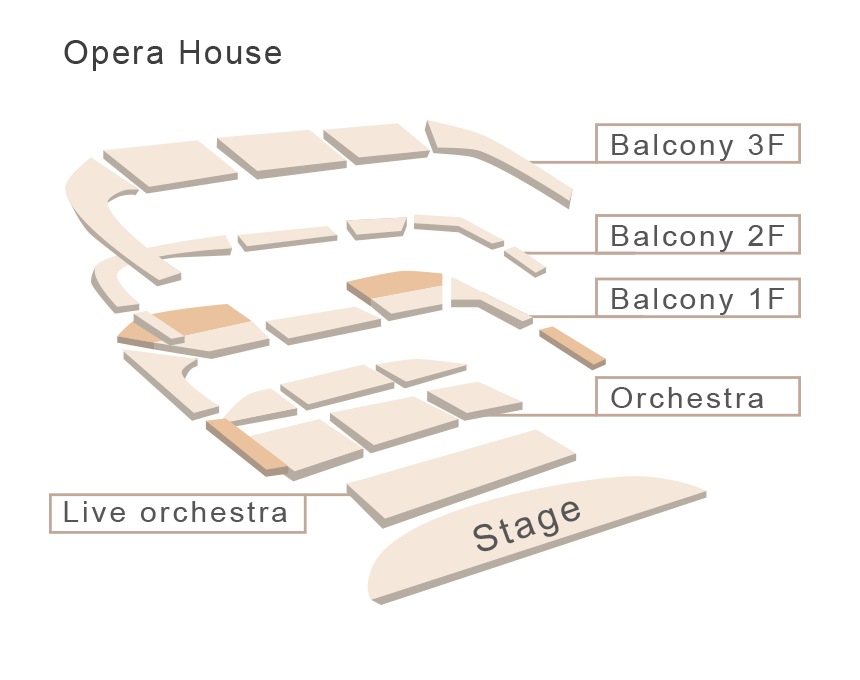 歌剧院
歌剧院
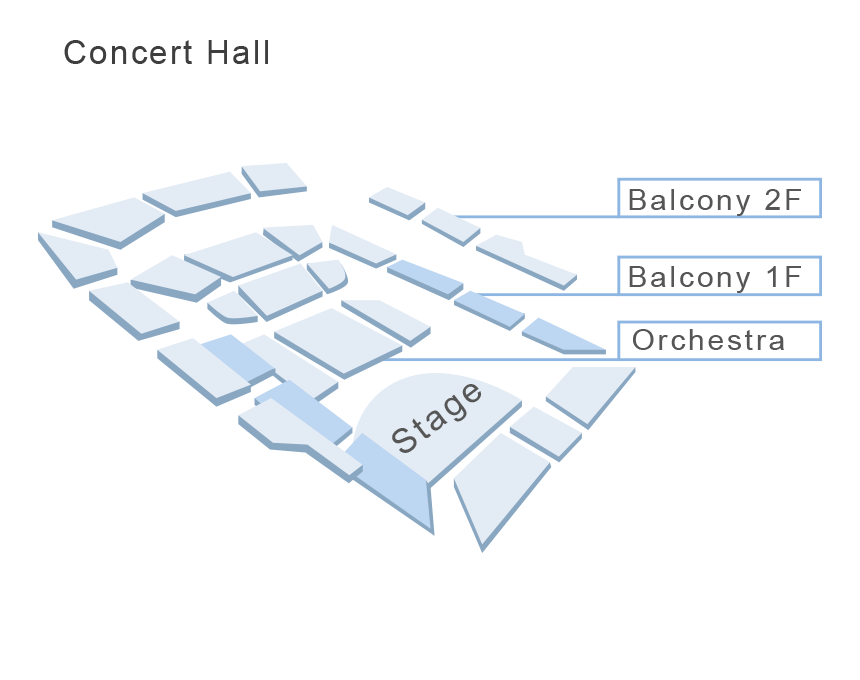 音乐厅
音乐厅
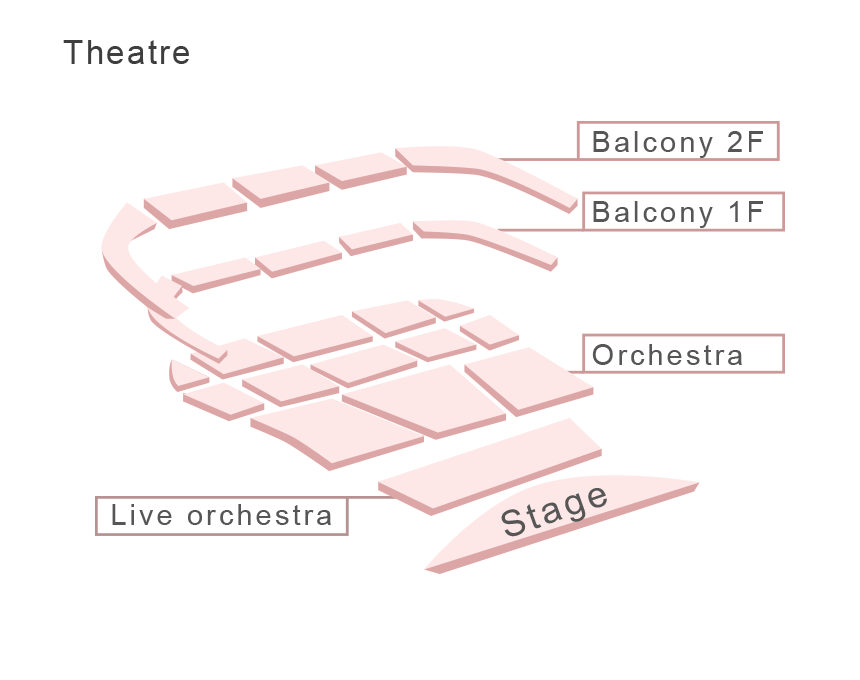 戏剧场
戏剧场
 小剧场
小剧场











